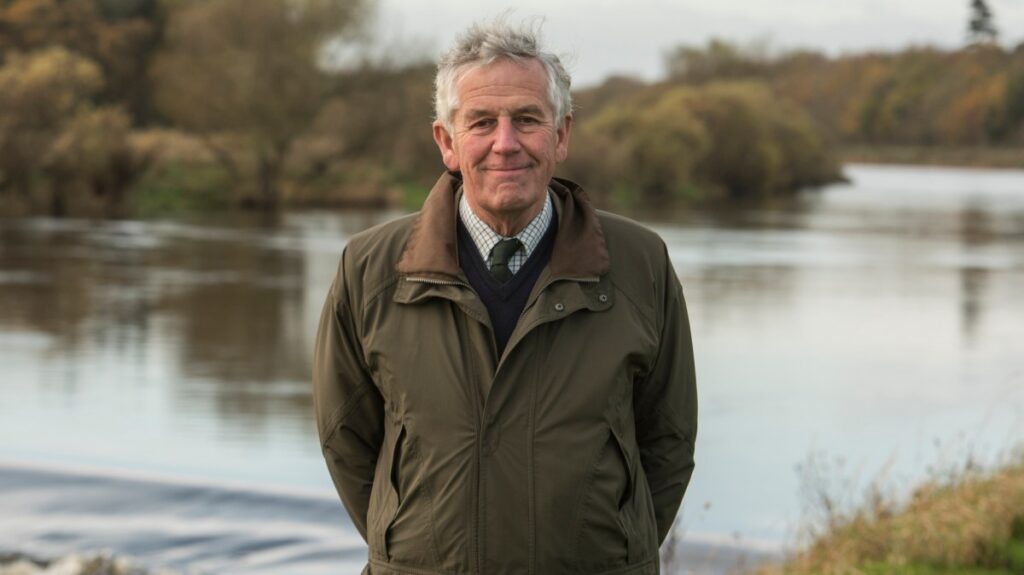
James Hepburne Scott, a visionary in forestry and a pioneer in the voluntary carbon market, passed away on August 3, 2025, at the age of 78. His contributions to environmental conservation and carbon offsetting have left a lasting legacy, particularly in the United Kingdom, where his efforts have helped shape modern approaches to sustainable land management.
In the 1990s, as the UK government withdrew tax incentives for woodland creation, the rate of new tree planting plummeted. By 2008, it had reached its lowest level in three decades. Hepburne Scott, who balanced a career in forestry with political ambitions, identified the potential of private capital investment in carbon capture as a solution to reverse this decline. His foresight led to the establishment of Forest Carbon, a venture that has since supported the creation of 275 woodlands and the planting of 13 million trees across the UK and Ireland.
Early Life and Military Career
Born on July 21, 1947, James Patrick Hepburne Scott was the eldest of three children. His upbringing was steeped in a rich family history, with his mother being a direct descendant of Hercules Ross, a Scottish merchant and abolitionist. Hepburne Scott’s early years were spent on various estates, fostering a deep connection with the land that would influence his future endeavors.
Educated at Aysgarth School and Eton College, Hepburne Scott developed a love for music, playing the violin and joining a reels band. His military career began at Sandhurst, where he was commissioned into the 1st Battalion of the Black Watch. He served in Germany, Edinburgh, and Northern Ireland, and was part of the royal guard at Balmoral. His military service concluded in 1977, after which he pursued a degree in combined science at the Shrivenham Royal Military College of Science.
Transition to Forestry and Carbon Markets
After leaving the army, Hepburne Scott embarked on a career in agriculture and estate management, which included roles as a regional sales manager and director at a grain company. His political aspirations saw him become a prospective Tory candidate, though he ultimately found his calling in forestry.
In 2005, Hepburne Scott’s proposal for a British version of the voluntary carbon market caught the attention of Steve Prior, a former headmaster and fellow environmental enthusiast. Together, they founded Forest Carbon, a venture that capitalized on the voluntary carbon market to finance woodland creation and peatland restoration. Their first project, supported by a grant from Marks & Spencer, involved planting woodlands on the Queensberry estate in Dumfriesshire.
Forest Carbon has supported the creation of 275 woodlands, planting 13 million trees and restoring over 1,400 hectares of peatland.
Innovations and Legacy
Hepburne Scott and Prior’s work extended beyond tree planting to include the restoration of peatlands, which are significant carbon sinks. In 2022, they organized the UK’s first carbon-financed peatland restoration project in Sutherland, followed by a pioneering program at Dryhope in the Scottish Borders.
Their efforts were instrumental in developing the woodland carbon code, launched by the UK government in 2011, and the peatland code by the International Union for Conservation of Nature in 2015. These codes set standards for carbon sequestration projects, emphasizing biodiversity, public recreation, and the principle of additionality.
Locally, Hepburne Scott’s work with the Tweed Forum led to the planting of over half a million trees to mitigate flooding in the River Tweed catchment area. His contributions to forestry were recognized with an OBE in 2023, and he was appointed an honorary fellow of the Institute of Chartered Foresters.
Personal Life and Interests
Hepburne Scott’s personal life was marked by a long and happy marriage to Christian Surtees, with whom he had three children. The family lived on a 220-acre farm in Lauderdale before moving to Wiltshire in 2021. Despite his diagnosis with glioblastoma, Hepburne Scott remained active in his community and continued to pursue his interests in music and family history.
His passion for forestry and the environment was matched by his enthusiasm for mentoring young people and engaging in debates at exhibitions and trade shows. Hepburne Scott’s legacy is one of innovation, dedication, and a profound impact on the landscape of British forestry and carbon management.




